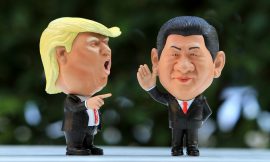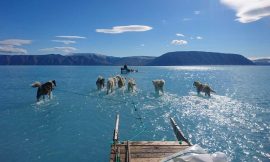In 1989, in a prophetic article, Edward Luttwak heralded the advent of geoeconomics. He believed that in the dual context of globalisation and the end of the Cold War, power relationships would be governed more by economics than by military might. The EU’s unprecedented sanctions against Moscow following the invasion of Ukraine have made this revolution in the expression of power strikingly relevant once again. But are sanctions truly effective?
***The authors thank the creators of the Global Sanctions Database for kindly sharing their data.
Globalisation and new forms of conflict
In 1983, Theodore Levitt announced the advent of “globalisation”. He highlighted the fact that, worldwide, markets were becoming increasingly dynamically interconnected. The phenomenon has not waned: according to the KOF index, globalisation has doubled in intensity over the last 50 years. The result is an intensification of both commercial and financial economic flows: countries trade goods and services, raise capital in foreign markets, and invest outside of their national borders.
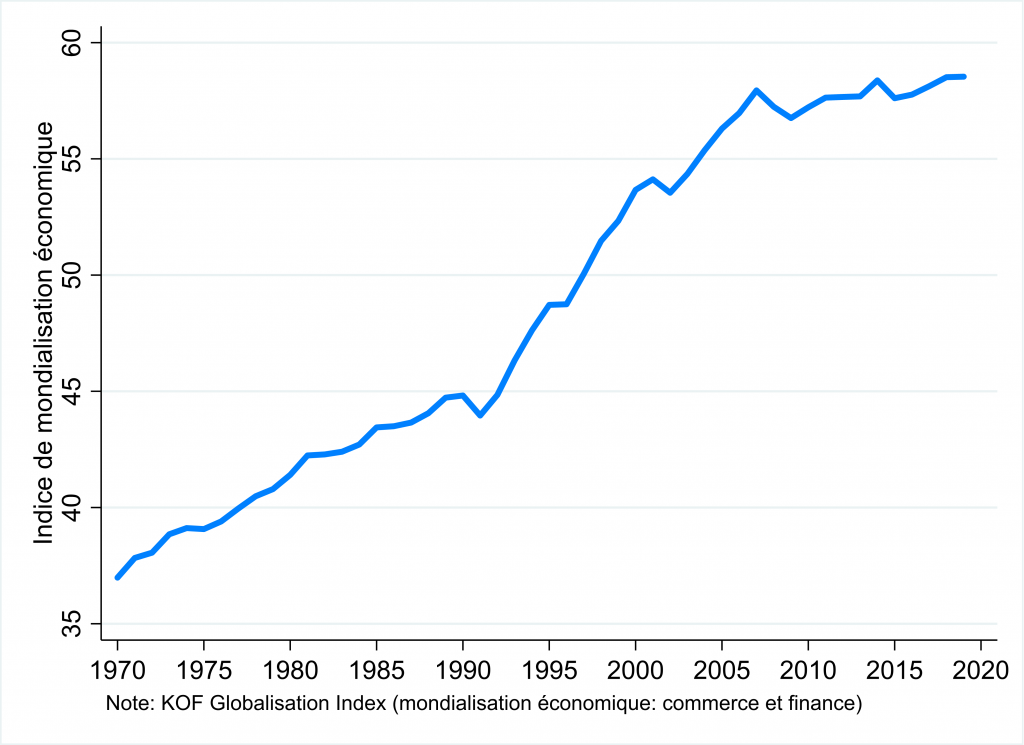
In parallel, since the end of the Cold War we have seen a spectacular evolution in forms of war: while interstate conflicts have become uncommon, intrastate conflicts and tensions have more than doubled. In 2020, there were just three ongoing interstate conflicts in the world, versus some fifty civil wars – in Syria, Ethiopia, Myanmar and Mali, for example. In all of these countries, the state is grappling with elements of civil society that are opposed to it and/or each other. This is one of the signs of our times: for a long time, war was the expression of the (excessive) power of states, whereas now it is more often than not the sign of its collapse.
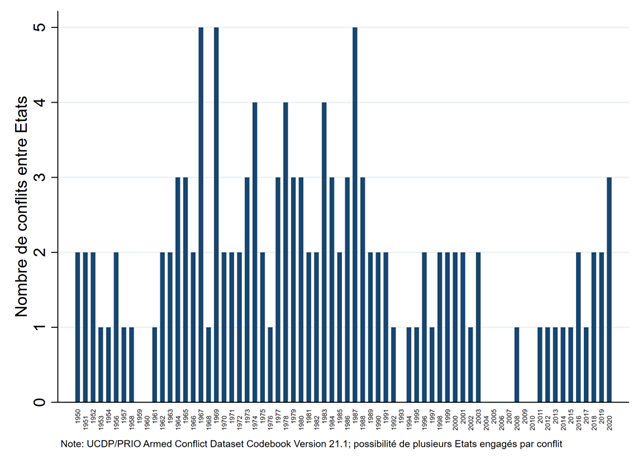
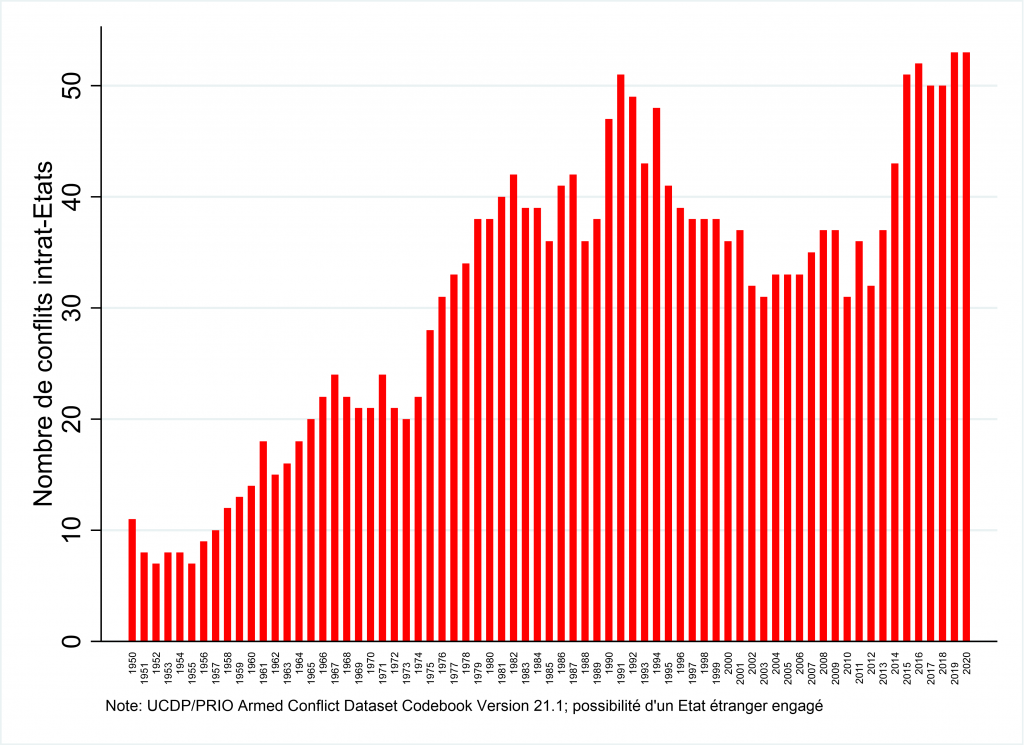
Yet, this reduction in the number of interstate conflicts does not mean that states, particularly the richest and most powerful, have given up defending or imposing their interests. It simply means that they tend to wield other tools of power, more economic than military in nature. They practise geoeconomics which, in the context of foreign policy,can be defined as the use of economic instruments to influence the political objectives of another country. This shift from military geopolitics to geoeconomics is largely the result of the interdependence created by economic globalisation. While traditional geopolitics has not disappeared (and actually nothing could be more wrong than reducing it to the mere use of weapons; power can also be “soft”), its exercise now relies on the weapons of our time: less steel and bombs, more capital and sanctions. To put it in the words of the great power theorist Joseph Nye, in a context of globalisation political actors tend to use the threat of economic sanctions as an alternative to the threat of military intervention. Geoeconomic power relations have a double advantage: they target the very cornerstone of globalisation – value creation – without any long-term destruction of capital – infrastructure, cities – and without directly killing people as traditional warfare does.
The new age of sanctions
Thus, in the era of globalisation, sanctions have become one of the preferred tools of the major states when they want to overcome an adversary. When sanctions are in place, the positive-sum game of liberal globalisation becomes a zero-sum game: not everyone wins when geoeconomics comes into play!
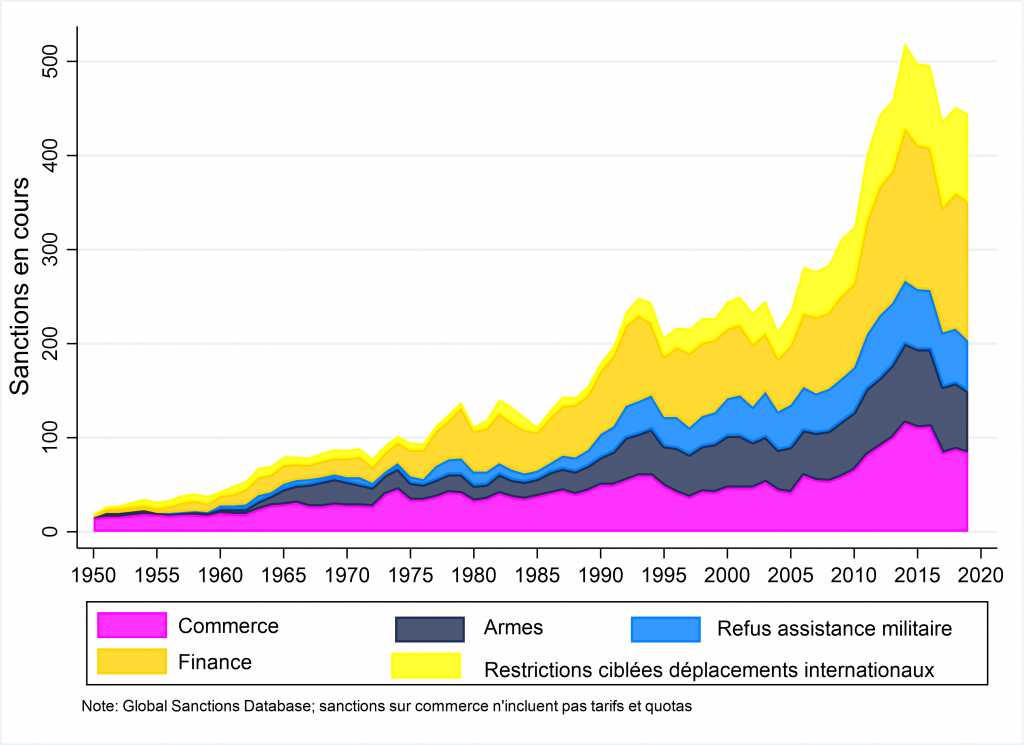
A quantitative and structural examination of the nature of the sanctions states impose on others shows the extent to which the grammar of conflicts has evolved. Not only has the number of sanctions more than doubled since 1990, but more importantly their nature has also changed. The classic sanctions – arms embargo, trade embargo (excluding tariffs and quotas, which are not included in the Global Sanctions Database) – are still in use today, but the most widely used are those directly linked to the rise in financial globalisation and the movement of people. Financial integration, improved payment tracing, the extraterritoriality of U.S. law combined with the prevalent use of the American dollar, along with a desire to apply targeted sanctions have all contributed to this diversification of geoeconomic instruments. It is not wrong to say that sanctions are a rather accurate reflection of the major trends in globalisation.
But the new age of sanctions also extends to their objectives, which are inextricably linked to the nature of the regimes adopting them. Indeed, today the majority of sanctions are imposed by the United States and the European Union. The aim of these countries with strong bargaining power is to enforce respect of their founding principles – namely human rights and democracy – abroad.
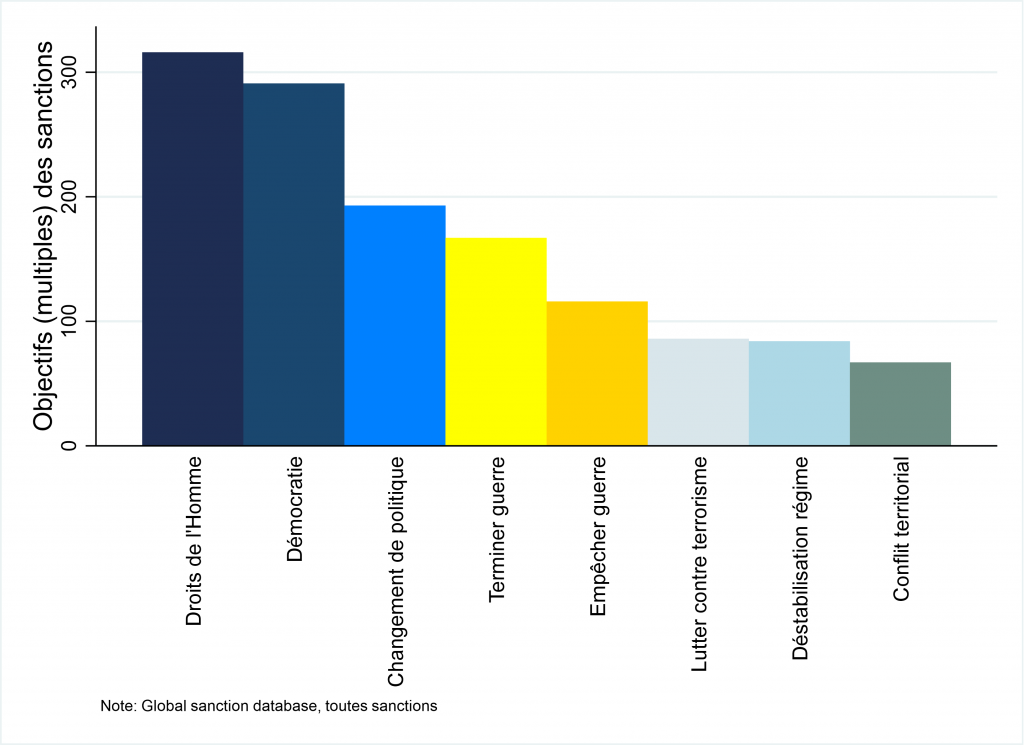
The sanctions against Russia, a crisis resembling “all-out economic warfare”
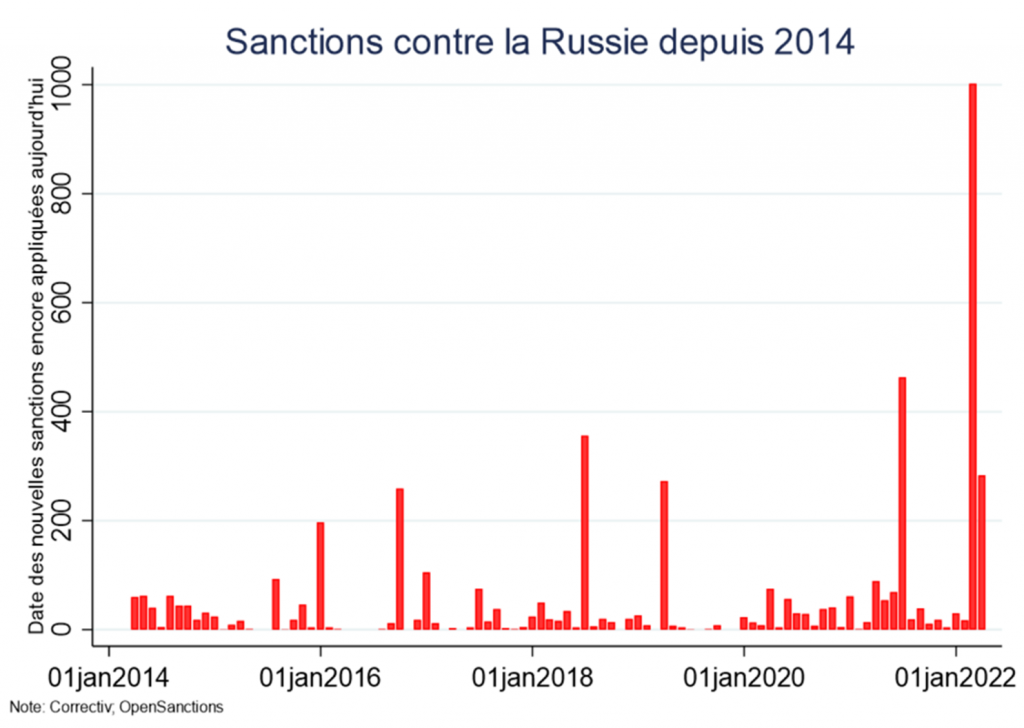
The current Russia-Ukraine crisis is a striking example of geoeconomics used to counter geopolitics. Russia has militarily invaded Ukraine and the Western powers are attempting to end the conflict using geoeconomics. Since 22 February 2022, more than 1,275 sanctions have been imposed by the international community, including the exclusion of Russia from the global financial system.
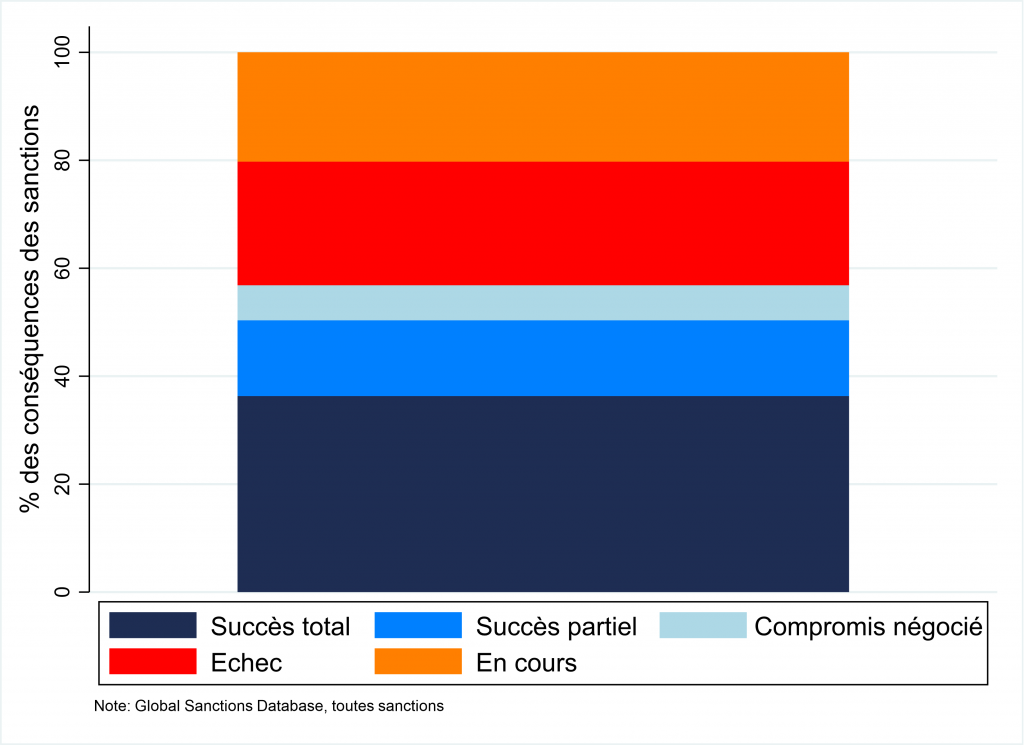
Unfortunately, sanctions do not always achieve their aims. On average, they can be considered completely successful in just one-third of cases (including in conflict resolution). One concern is that geoeconomics may give way to classic geopolitics, particularly if Russia is successful at increasing trade with neutral economic partners such as China. The EU arms deliveries to Ukraine symbolise this possibility.
Finally, it is important to remember that economic sanctions can simultaneously fail to achieve the expected objectives and lead to terrible consequences for the civilian populations that bear their brunt. The historian Nicholas Mulder points out that economic blockades can be devastating instruments; their human impact can be as horrifying as that of conventional arms.




